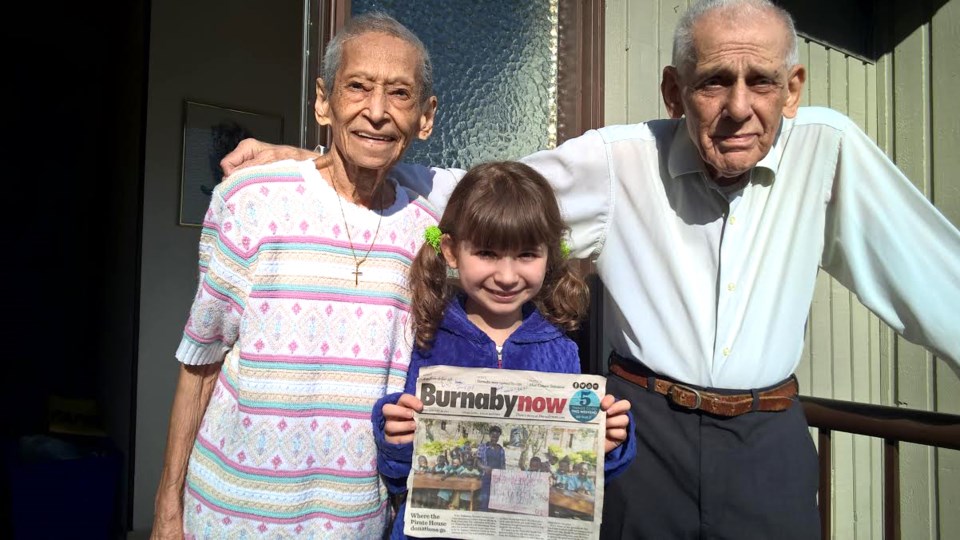The founder of Pirate House says she was “moved” and “inspired” after hearing why a Burnaby couple donated to her cause.
Julie Desroches’ name usually makes headlines around Halloween, when she transforms her front lawn into a pirate-themed attraction. The display is kid-friendly and usually draws a few hundred people each year. It’s Desroches’ passion project, to celebrate her road to recovery after a near-fatal abdominal infection she developed one month before the due date of her second child, Emma.
Pirate House raises funds for St. Stephen Children’s Centre, located in the African country of Uganda. Since it launched in 2013, the initiative has raised more than $10,000, money that has been used to bring a roof, solar electricity and clean water to the school. Last October, enough money was raised to buy new desks for the students.
After reading of Desroches’ efforts in the NOW, Henry Thompson and his wife, Lorna, made a “very generous” donation to Pirate House (the couple didn’t want to disclose the amount).
Thompson grew up in India poor, so he saw some of his childhood in a photo the NOW published in January of the kids sitting at their new desks.
“We were very poor, (but) we were very happy. There were no tears. Everybody loved each other,” the 90-year-old said.
Thompson recalled a moment that greatly influenced his life and taught him the value of kindness.
When he was young, a neighbour dropped in to borrow a cup of oil to cook food for her children. The family couldn’t afford to buy any. Thompson’s mother offered to give the neighbour half a cup because she only had one cup left. At the time, Thompson feared they wouldn’t have enough for themselves. He said his mom would say, “We’ll get, we’ll get.”
His mother explained to him the neighbour had children, too, and she couldn’t let them go hungry.
“My mother never took anything for granted. When people asked her for things, she gave. That was her upbringing. She brought us up on the same lines as she was brought up,” said Thompson.
Eventually, the family “did get.”
Thompson’s mother went on to win 10,000 rupees (now $200 CAD) for completing a perfect crossword.
“Evidently, she knew that somewhere along the line, God was watching. In life, that was her only hope, and I guess she was right – to hope and to trust. If there is a God, he knew what she was,” Thompson added.
Today, the former CBC technician hopes to do the same for other children.
The Thompsons’ donation will be invested into a small business run at St. Stephen’s – a eucalyptus tree farm. Staff sell the lumber and then put all the profits back into the school. The money will be used to buy the centre another acre. Profits from the extra land will be used to buy milk, so the students can have a cup of milk with their morning porridge. The idea, long-term, is to save enough money to buy a cow for the centre.
“I was just moved by it and inspired,” Desroches said of Thompson’s story and donation. “Especially right now in this era that we’re in, to hear those stories is really important and to realize that we all play a part and we can all make a choice, and when we do that, it has incredible impact.”
After she sent out an email to her Pirate House email subscribers, sharing Thompson’s story, Desroches said she’s seen more donations come in.
“A few people offered to do some fundraisers. It makes people feel like they’re part of something that’s important. It’s also a nice sense of belonging, that we’re doing all this together.”



